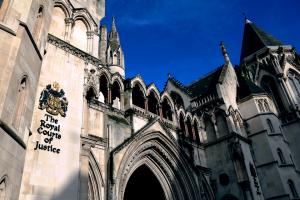Court tells UK Government to rewrite Snoopers’ Charter
 A high court has held that the UK Government must rewrite certain sections of the controversial Snoopers’ Charter that have been deemed illegal, particularly those passages that address companies retaining the public’s data.
A high court has held that the UK Government must rewrite certain sections of the controversial Snoopers’ Charter that have been deemed illegal, particularly those passages that address companies retaining the public’s data.
Ministers have been given a deadline of July 2018 to rewrite sections of the legislation that the government has acknowledged are unlawful.
Powers that require telecomms companies to hold onto customers’ phone and internet records - even after they have ceased being customers - was found by a high court this week to be inconsistent with European law.
In addition, it was reported by Liberty, a human rights group, that officials have been illegally ordering for sensitive data belonging to the UK public to be stored for 14 months, since the introduction of the Data Retention and Investigatory Powers Act (Dripa), better known as the “Snoopers’ Charter”.
Speaking at a hearing in the Royal Courts of Justice Martin Chamberlain, a barrister at Brick Court Chambers, told officials that the government should be given until 31 July to amend Dripa to bring it in line with EU and humans rights laws.
He told presiding justices Rabinder Singh and David Holgate: “The court is saying you have until July to put your house in order. If you have not put your house in order, then it is open to the parties, including Liberty, to seek further relief from the court.”
The government admitted in court that Dripa requires companies to retain customer data for reasons that are far beyond serious crime prevention or national security. The court also heard how judicial commissioners, required to issue data retention notices, had not been hired in time.
Liberty’s Ben Jaffrey told the court that only a handful of such notices are required in order to collect data from a huge number of people.
“In the UK there are two fixed line operators, BT and Virgin, and four mobile operators. Once you have covered those with a retention notice, you have general and indiscriminate retention,” he said.
He added that his group wanted surveillance to occur on a targeted, rather than indiscriminate, basis.







